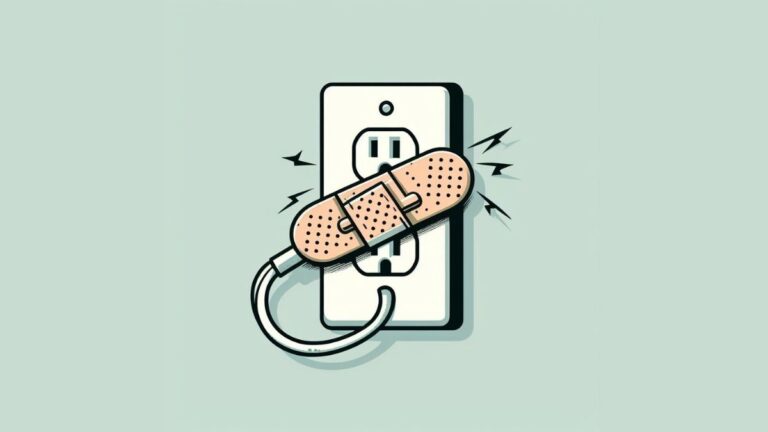What do Hotels do with Leftover Food? Exploring Sustainable Solutions

As participants in Amazon Associates and other programs, we earn from qualifying purchases. This comes at no additional cost to you. For more details, see our Affiliate Disclosure.
Have you ever wondered what happens to all the leftover food in hotels? It’s a question that many of us have asked ourselves at some point. In this article, we’ll explore the sustainable solutions that hotels are implementing to reduce food waste and make the most of their resources.
From donating to local charities to composting and recycling, there are many ways that hotels are taking responsibility for their impact on the environment. So let’s dive in and discover what hotels are doing with their leftover food!
Understanding the Scale of Food Wastage in Hotels
To truly comprehend the issue at hand, it is essential to grasp the sheer scale of food wastage in the hotel industry. On a global scale, the United Nations Food and Agriculture Organization estimates that around one-third of the food produced in the world for human consumption, approximately 1.3 billion tons, gets lost or wasted every year.
In the context of the hotel industry, a study by the Waste and Resources Action Programme (WRAP) in the UK found that the hospitality sector produces 920,000 tons of food waste annually, of which hotels account for a significant proportion.
It’s important to note that food waste in hotels does not only come from guests’ plates. It also emerges from overproduction, spoilage, and expiration in kitchens. Understanding the size of the problem is the first step towards devising effective strategies for reducing food waste and creating more sustainable operations in the hotel industry.
Legal Framework and Guidelines for Leftover Food in Hotels
Navigating the legal landscape of leftover food management in hotels can be a complex task, as laws and regulations vary from country to country and even between states or regions. These rules often address matters such as how leftover food should be stored and disposed of, and they also regulate donations of excess food to charity.
In the United States, for example, the Bill Emerson Good Samaritan Food Donation Act provides protection for businesses, including hotels, that donate food to non-profit organizations, mitigating the liability concerns that often prevent hotels from donating their excess food. The U.S. Environmental Protection Agency also promotes the Food Recovery Hierarchy, a guideline that encourages organizations to prioritize reducing food waste at its source, then feeding hungry people, feeding animals, and finally, recycling and composting.
The European Union has been proactive in addressing the issue as well. The EU Waste Framework Directive requires member states to take necessary measures to reduce food waste at each stage of the food supply chain, monitor food waste levels and report back on their progress.
Many local health departments also have regulations that dictate how leftover food should be handled to prevent the spread of foodborne illnesses. These guidelines often stipulate specific temperatures at which food must be kept, and how long it can be stored before it must be discarded.
Despite this regulatory patchwork, many hotels are going above and beyond these requirements, implementing innovative food waste reduction strategies and donating leftover food whenever possible. However, awareness of the legal framework is essential to navigate these initiatives effectively and responsibly.
The Current Methods: How Hotels Handle Leftover Food Today
The current methods for managing leftover food in hotels vary widely depending on the hotel’s size, location, available resources, and awareness of the issue. Here are some of the most common approaches that are used today:
- Composting: Many hotels have adopted composting as a way to deal with organic waste, including food. The compost produced can be used to enrich the soil in hotel gardens, contributing to a closed-loop system of waste management.
- Donation: Where permissible by local regulations, hotels often donate surplus food to local charities and food banks. This not only reduces waste but also helps feed those in need within the community.
- Food waste tracking: Some hotels have implemented tracking systems to monitor the amounts and types of food being wasted. This information can be used to adjust purchasing and preparation practices to reduce overproduction.
- Employee training: By training employees to minimize food waste, whether by accurate portioning, efficient meal planning, or proper food storage techniques, hotels can significantly reduce the amount of food that ends up in the bin.
- Waste disposal services: Many hotels work with waste disposal companies that can efficiently and responsibly handle large volumes of food waste. Some of these companies can convert food waste into biofuel or animal feed, contributing to a circular economy approach.
- Guest engagement: Some hotels educate their guests about the issue of food waste and encourage them to take only what they can eat, particularly in buffet-style dining settings.
While these methods have had varying degrees of success, the hotel industry continues to seek innovative and effective solutions to further reduce food waste. The adoption of sustainable practices not only supports environmental conservation efforts but can also lead to cost savings for the hotels themselves.
Innovative Approaches to Minimize Food Waste in Hotels
As the world continues to focus on sustainability and waste reduction, many hotels have begun to employ innovative approaches to minimize food waste. These practices are not only environmentally friendly, but they often result in cost savings as well. Here are some cutting-edge methods currently being explored:
- Food Waste Digesters: Some hotels are installing food waste digesters in their kitchens. These machines use microorganisms to break down organic waste, producing greywater that can be safely disposed of in regular sewage systems.
- Food Redistribution Apps: Technology has stepped in with apps that connect hotels with charities or individuals who can use the leftover food. These apps allow hotels to post about their surplus food, which can then be picked up and used, instead of going to waste.
- AI and IoT in Meal Planning: Artificial intelligence (AI) and the Internet of Things (IoT) are being used to predict meal demand more accurately, thereby reducing overproduction. Sensors in refrigerators and bins can monitor food levels and expiry dates, alerting kitchen staff to use these items before they spoil.
- Edible Food Packaging: Some hotels are introducing edible packaging for certain food items to cut down on waste. For instance, using cones instead of cups for ice cream or edible cutlery can significantly reduce waste.
- Sustainable Menu Planning: Many hotels are moving towards more sustainable menu options, such as offering plant-based meals, sourcing locally, and even growing some of their own produce. This not only reduces food miles and associated waste but also caters to an increasingly environmentally conscious customer base.
- Portion Control Tools: Innovative tools to control portion sizes accurately help ensure guests receive consistent servings, reducing the chances of leftover food on plates.
These innovative practices represent a promising direction for the hotel industry. They signify an important shift towards acknowledging the scale of food waste and proactively working to reduce it, taking significant strides towards a more sustainable future.
The Role of Technology in Managing Leftover Food
As the adage goes, “what gets measured, gets managed.” With the advent of technology, hotels are leveraging various tools and software to measure and manage their food waste more effectively. Here are some ways technology is being utilized in the battle against food waste in hotels:
- Food Waste Tracking Software: Several companies offer software that enables hotels to measure and analyze their food waste. These digital tools track wasted food and offer insights about where in the process the waste is happening, such as during preparation, from customer plates, or from spoilage. By understanding these patterns, hotels can identify where to make changes to reduce waste.
- AI and Machine Learning: Artificial Intelligence (AI) and machine learning algorithms are being employed to forecast food demand accurately. By analyzing historical data and considering factors such as seasonality, occupancy rates, and special events, these systems can help hotels prepare the right amount of food, reducing overproduction.
- IoT Devices: Internet of Things (IoT) devices, such as smart fridges and bins, can monitor food stock levels and expiry dates in real-time. These devices can alert staff when food items are about to spoil, ensuring these ingredients are used before they become waste.
- Food Redistribution Apps: As mentioned earlier, various apps connect hotels with local charities, food banks, or even individuals to donate their surplus food. This not only reduces food waste but also aids in community feeding initiatives.
- Food Waste Digesters: Technological advancements have given rise to food waste digesters, which can quickly break down food waste on-site, reducing the volume of waste and producing greywater that can be safely disposed of.
Technology plays a pivotal role in the hospitality industry’s quest to reduce food waste, offering a more sustainable approach to food management. As technology continues to evolve, we can expect to see even more sophisticated solutions in the future.
Sustainability and Social Responsibility: Hotels Partnering with Charities and Food Banks
In the face of the global food waste crisis, an increasing number of hotels are recognizing the importance of sustainability and social responsibility. Partnering with local charities and food banks has become a common practice for hotels aiming to mitigate their food waste while also contributing to their local communities.
Partnering with Charities and Food Banks
When surplus food is still safe for consumption but cannot be used within the hotel, partnering with charities and food banks offers a viable solution. This not only prevents good food from ending up in landfills but also supports local communities by providing meals for those in need.
Food donation programs are especially beneficial in urban areas where food insecurity often exists alongside food waste from the hospitality industry.
Employee Engagement Programs
Some hotels also run employee engagement programs, where staff volunteers help distribute surplus food to local shelters or community centers.
This not only contributes to waste reduction efforts but also strengthens the hotel’s relationship with the community and increases staff morale.
Legal Protections for Donations
Hotels often have concerns about potential liabilities associated with donating food. However, in many countries, legal protections exist for businesses that donate food in good faith.
In the United States, for instance, the Bill Emerson Good Samaritan Food Donation Act protects businesses from civil and criminal liability should the donated food cause harm, except in cases of gross negligence or intentional misconduct.
Partnering with Food Rescue Organizations
Food rescue organizations have also emerged as critical players in the fight against food waste. These organizations collect surplus food from businesses, including hotels, and distribute it to charities that can use it.
By partnering with these organizations, hotels can ensure their surplus food reaches those who need it most, while minimizing waste.
Challenges and Future Directions for Reducing Hotel Food Waste
While the hotel industry has made significant strides in managing food waste, several challenges remain. However, these hurdles also present opportunities for future improvements and innovation.
Challenges in Reducing Food Waste
- Legal and Health Regulations: One of the major hurdles is navigating the complex legal and health regulations surrounding food waste and its donation. Misunderstandings about liability can discourage hotels from donating excess food.
- Logistical Difficulties: Logistics can be another challenge. Arranging for timely pickup and delivery of leftover food to ensure it remains safe for consumption can be tricky, particularly in larger establishments.
- Cost Considerations: Initial investments in food waste reduction technology or practices can be substantial, which might deter some hotels, especially smaller businesses, from implementing them.
- Lack of Awareness and Training: Despite growing recognition of the food waste problem, there may still be a lack of awareness or training among staff about best practices for minimizing waste.
Future Directions for Food Waste Reduction
- Improving Legislation and Guidelines: There’s a need for clear, universal guidelines that make it easier for hotels to safely donate excess food. Greater legislative clarity would likely encourage more establishments to participate in food donation programs.
- Investing in Technology: The ongoing development and adoption of technology for tracking and reducing food waste are promising trends. Future advancements will likely make these technologies more accessible and cost-effective.
- Enhancing Training Programs: Developing comprehensive training programs for hotel staff can ensure everyone understands their role in minimizing waste. Such programs could include tips for food storage, portioning, and creative repurposing of leftovers.
- Fostering Partnerships: Building strong partnerships with food rescue organizations, charities, and other stakeholders can streamline the process of redistributing surplus food.
By overcoming these challenges and continuing to innovate, the hotel industry can play a pivotal role in reducing food waste on a global scale, moving towards a more sustainable future for all.
The Impact of Reducing Food Waste on the Hospitality Industry and the Environment
The impact of reducing food waste in the hospitality industry goes far beyond just the conservation of resources—it has wide-reaching implications for the industry’s profitability, public image, and for the health of the planet.
Impact on the Hospitality Industry
- Cost Savings: Implementing food waste reduction strategies can lead to significant cost savings for hotels. By minimizing overproduction, optimizing inventory, and managing portion sizes, hotels can reduce their food procurement costs.
- Improved Brand Image: Hotels that take a stand against food waste often experience an improved public image. Consumers are increasingly concerned about sustainability, and many appreciate businesses that take steps to address environmental challenges.
- Compliance with Regulations: As governments around the world continue to tighten regulations around food waste, implementing reduction strategies can help hotels stay ahead of these requirements and avoid potential fines or penalties.
Impact on the Environment
- Reduced Greenhouse Gas Emissions: When food is wasted, the resources used in its production, transportation, and disposal are also wasted. Additionally, food that ends up in landfills decomposes without oxygen, producing methane—a potent greenhouse gas. By reducing food waste, hotels can help limit these emissions.
- Conservation of Resources: Reducing food waste also means saving the water, land, and energy that would otherwise be used to produce, transport, and dispose of wasted food.
- Biodiversity Protection: By reducing demand for excessive food production, we can limit the expansion of agricultural land, thereby helping to protect natural habitats and preserve biodiversity.
Addressing food waste within the hospitality industry therefore offers a win-win scenario—cost savings for businesses, and significant environmental benefits. As such, food waste reduction is a crucial part of the global movement towards more sustainable and responsible consumption and production.
How Can Guests Play a Part in Reducing Food Waste?
While much of the responsibility for reducing food waste in hotels falls on the establishments themselves, guests can play a significant role in this endeavor as well. Here are a few ways guests can contribute to reducing food waste:
- Mindful Ordering: Guests can order only what they can consume, particularly in buffet-style restaurants or room service. In case of buffets, taking smaller portions initially and going back for more if needed can help reduce the amount of food left on plates.
- Leftover Packaging: If guests can’t finish their meals, they can ask for their leftovers to be packaged. Many hotels provide compostable containers for this purpose.
- Feedback: Guests can provide feedback to hotels about their portion sizes, the variety of menu options, or the availability of half-portions. Constructive feedback can encourage hotels to reconsider their practices and reduce food waste.
- Support Sustainable Hotels: Guests can choose to stay at hotels that are known for their sustainable practices, including food waste reduction. Their patronage sends a strong message to the industry about what consumers value.
- Participation in Hotel Initiatives: Guests can participate in any food waste initiatives the hotel may have, such as educational events or waste segregation programs.
- Mindful Buffet Practices: At buffets, guests can use smaller plates (which are often available) to avoid taking more food than they can eat.
- Education and Awareness: Before and during their stay, guests can educate themselves about the impact of food waste and the practices they can adopt to help mitigate this.
By making these small but impactful changes, guests can contribute significantly to the reduction of food waste in the hospitality industry and set a positive example for others.






